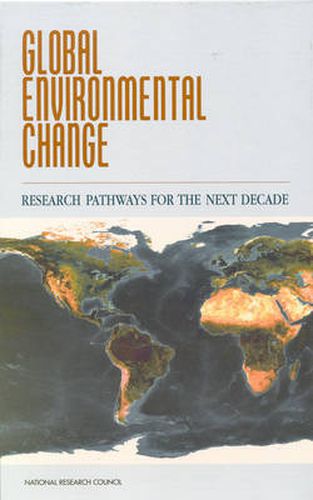Readings Newsletter
Become a Readings Member to make your shopping experience even easier.
Sign in or sign up for free!
You’re not far away from qualifying for FREE standard shipping within Australia
You’ve qualified for FREE standard shipping within Australia
The cart is loading…






How can we understand and rise to the environmental challenges of global change? One clear answer is to understand the science of global change, not solely in terms of the processes that control changes in climate and the composition of the atmosphere, but in how ecosystems and human society interact with these changes. In the last two decades of the twentieth century, a number of such research efforts - supported by computer and satellite technology - have been launched. Yet many opportunities for integration remain unexploited, and many fundamental questions remain about the earth’s capacity to support a growing human population. This volume encourages a renewed commitment to understanding global change and sets a direction for research in the decade ahead. Through case studies the book explores what can be learned from the lessons of the past 20 years and what are the outstanding scientific questions. Highlights include: research imperatives and strategies for investigators in the areas of atmospheric chemistry, climate, ecosystem studies, and human dimensions of global change; the context of climate change, including lessons to be gleaned from paleoclimatology; and human responses to - and forcing of - projected global change. This book offers a comprehensive overview of global change research to date and provides a framework for answering urgent questions.
$9.00 standard shipping within Australia
FREE standard shipping within Australia for orders over $100.00
Express & International shipping calculated at checkout
How can we understand and rise to the environmental challenges of global change? One clear answer is to understand the science of global change, not solely in terms of the processes that control changes in climate and the composition of the atmosphere, but in how ecosystems and human society interact with these changes. In the last two decades of the twentieth century, a number of such research efforts - supported by computer and satellite technology - have been launched. Yet many opportunities for integration remain unexploited, and many fundamental questions remain about the earth’s capacity to support a growing human population. This volume encourages a renewed commitment to understanding global change and sets a direction for research in the decade ahead. Through case studies the book explores what can be learned from the lessons of the past 20 years and what are the outstanding scientific questions. Highlights include: research imperatives and strategies for investigators in the areas of atmospheric chemistry, climate, ecosystem studies, and human dimensions of global change; the context of climate change, including lessons to be gleaned from paleoclimatology; and human responses to - and forcing of - projected global change. This book offers a comprehensive overview of global change research to date and provides a framework for answering urgent questions.